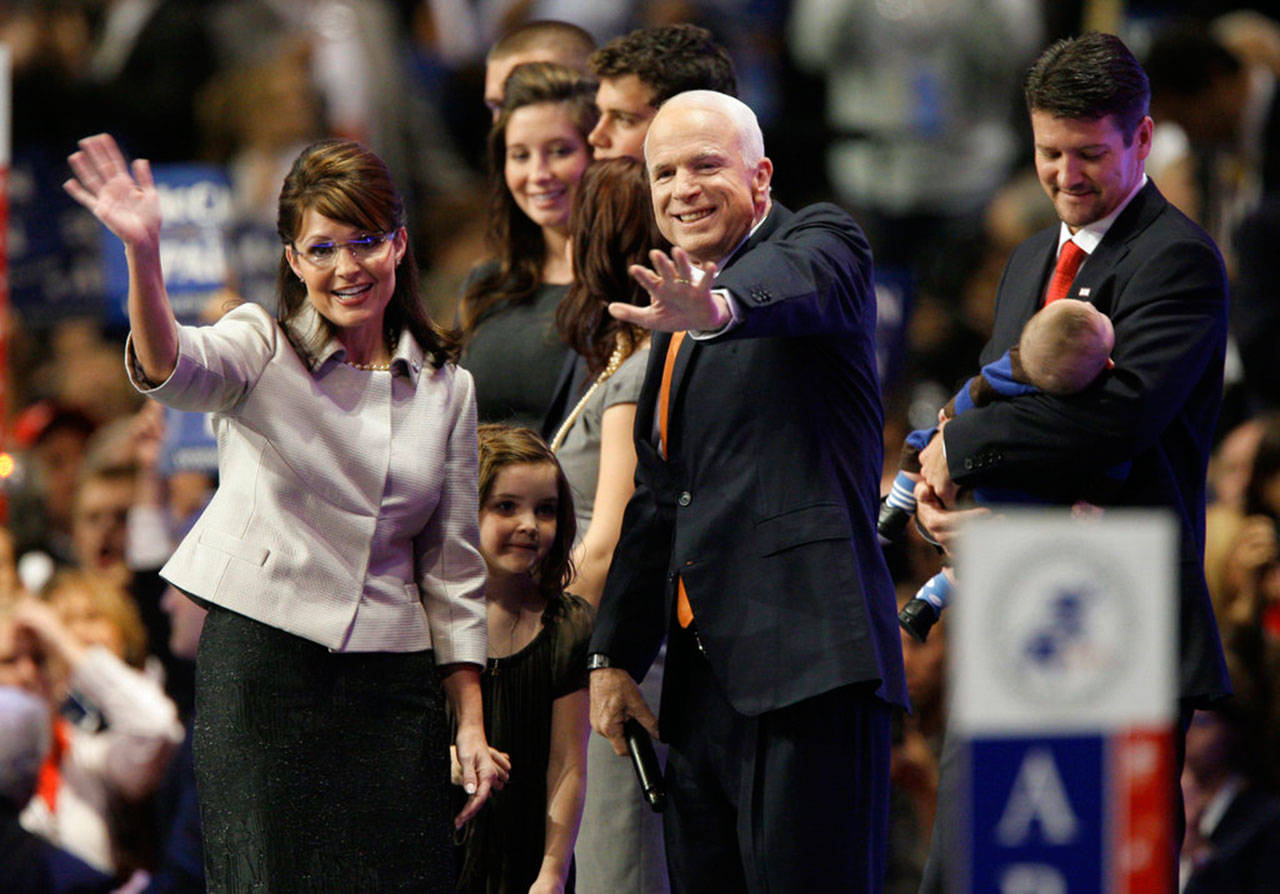By David Ignatius
John McCain’s death offers a moment to think about the insurgency in the GOP that vexed him during his final decade as a politician, and that produced in Donald Trump a man he seemed to loathe, but couldn’t figure out how to stop.
With true national heroes such as McCain, it’s a mistake to gild the lily: He was a complicated man whose gift of inflexible principle was sometimes a political and emotional burden. He recognized that politicians sometimes have to compromise, but he didn’t like doing it and often wasn’t very good at it. He had a temper, and he could hold grudges.
But with his passing on Saturday, McCain’s human qualities only bolster his stature as a real and enduring leader. Of all the politicians on the landscape during this generation, I suspect McCain may be among those who stand out most clearly in historical memory, not because he succeeded in bending the country toward the good values he embodied, but because he tried so hard and failed.
McCain saw the populist fire that was burning in the Republican Party, but he didn’t know what to do about it. His biggest mistake may have been the selection of an utterly unqualified Sarah Palin as his vice-presidential running mate in 2008, but it was an attempt to get out ahead of a movement that he could see was becoming more dominant in his party with each election cycle.
McCain had become an unlikely favorite among journalists with his “Straight Talk Express” forays during the 2000 campaign; he delivered barbed wisecracks and needled sacred cows to the delight of the traveling press. But he remained a hawkish, conservative senator, and as the 2008 campaign approached, he looked for ways to connect with the party that had elected Newt Gingrich as speaker and was spawning a tea party movement that embodied the inchoate public rage toward Washington.
McCain and I had a long talk in the spring of 2006 about what he would and wouldn’t do to get the GOP nomination. He had just been dinged by commentators for accepting a speaking invitation from right-wing preacher Jerry Falwell, and he was defending himself against charges that he had flip-flopped to win conservative support. “I haven’t changed,” he insisted. “My record is the same on all issues, which is that of a conservative Republican. Not a liberal Republican, not a moderate Republican.”
In the next instant, he was listing all the liberal measures he was supporting on principle, from banning torture to cleaning up campaign finance. I asked McCain whether he would compromise on these and other positions that were already anathema to right-wing Republicans to get the 2008 nomination, and he insisted it would never happen.
“I don’t want it that badly,” McCain told me. “I will continue to do what is right. I will continue to pursue torture, climate change. If that means I can’t get the Republican nomination, fine. I’ve had a happy life. The worst thing I can do is sell my soul to the devil.”
McCain had the self-knowledge to understand that he wasn’t very good at waffling. He explained: “Every time I did something because I thought it would be politically helpful, it turned out badly.” As an example, he cited his pandering to southern conservatives during the 2000 South Carolina primary when he said flying the Confederate flag at the state Capitol was a state issue.
McCain did win the 2008 GOP nomination without grossly violating any of his principles. But he knew in his gut that his party and the country wanted change, and that, as rebellious a man as he was, he was a symbol of an older politics. I think that’s why he reached out to Palin — to tap some of the energy that was surging in the anti-establishment wing of the Republican Party. It was a dreadful mistake, because it helped enfranchise the “know-nothingism” that was spreading on the right.
The anti-Washington rage embodied by Palin came back to haunt McCain, in the person of President Trump. My guess is McCain was one of the many millions of decent Republicans and Democrats who could never imagine that the GOP and then the American electorate (or at least the Electoral College) would actually vote for someone of such low moral character.
McCain’s refusal to temporize about Trump, as other Republicans have, was one of his finest moments. As the headline on my column 12 years ago put it, McCain was “A man who won’t sell his soul.”
Follow David Ignatius on Twitter @IgnatiusPost.
Talk to us
> Give us your news tips.
> Send us a letter to the editor.
> More Herald contact information.

























